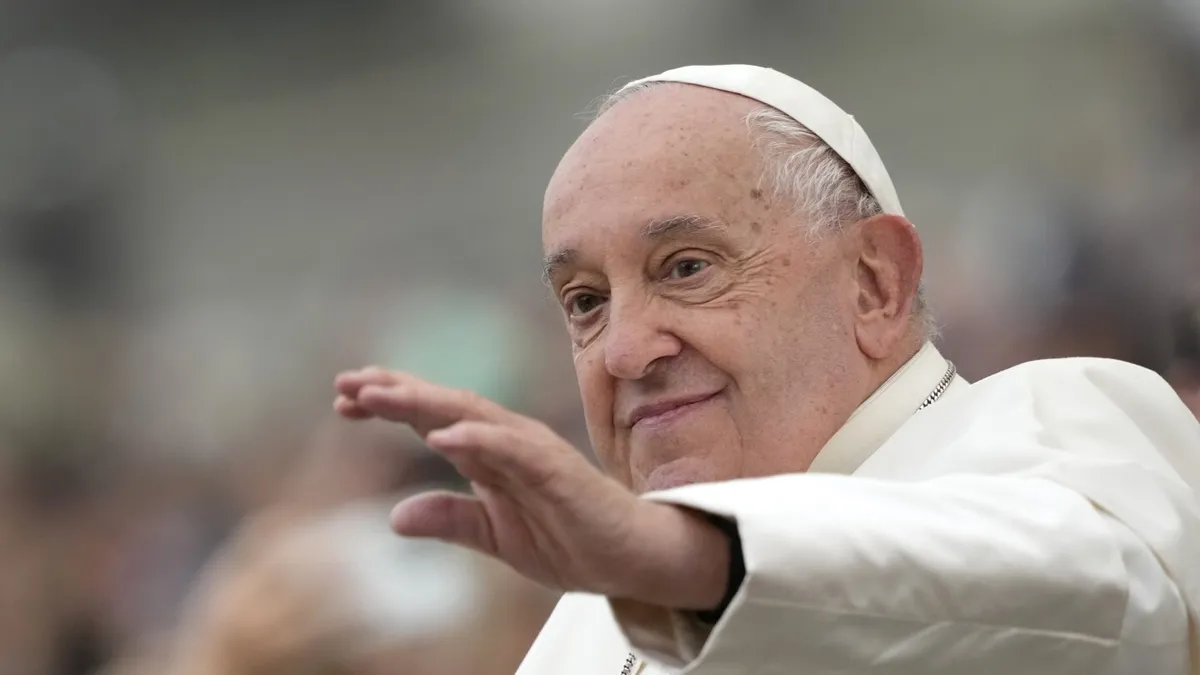
Pope Francis, who visited Africa a remarkable five times, acknowledged the strong growth of the Catholic Church on the continent. Throughout his visits, he addressed critical regional issues, including climate change and the marginalization of communities. Rev. Michael Nsikak Umoh, the spokesperson for the Nigerian bishops’ association, emphasized that the pope was “very unambiguous in telling world powers to stop exploiting Africans.” In 2023, during his visit to Congo, Francis called for an end to the plundering of Africa’s natural resources, aiming to be “the voice of the voiceless,” according to Abbé Camille Esika from Kinshasa.
The South African Catholic Bishops’ Conference has urged all Catholics to pray for those who will choose Francis' successor. The date of the funeral will be confirmed when cardinals gather on Tuesday morning to discuss urgent matters, including funeral plans. Francis’ coffin will be moved from the chapel of the Domus Santa Marta hotel, where he lived, to St. Peter’s Basilica for public viewing. In line with a new ritual approved by Francis last year, the pope will be placed in a wooden coffin, which contains a zinc coffin inside. He will be dressed in red liturgical vestments, complete with his miter and the pallium woolen stole.
During the procession into the basilica, the Litany of Saints will be chanted, led by Cardinal Kevin Farrell, the camerlengo. In a significant change ordered by Francis, his body will not be placed on an elevated bier but rather in a simplified wooden coffin facing the pews, accompanied by the Paschal candle. Though no date for the funeral has been set, it is expected to occur between four to six days after his death.
Rabbi Rick Jacobs, president of the Union for Reform Judaism, noted that the relationship between the Catholic and Jewish communities flourished under Francis. He praised the pope for honoring the shared heritage of both faiths and taking meaningful steps to heal historical wounds. Jacobs appreciated Francis's consistent calls for dialogue and mutual respect between Israelis and Palestinians, especially advocating for a two-state solution that ensures security and self-determination for both parties. “In Jewish tradition, when a righteous soul dies, we say, based on Proverbs 10:7, ‘The memory of the righteous is a blessing,’” Jacobs remarked, affirming that Francis's legacy would inspire all people of faith.
The Dalai Lama also offered prayers and condolences, recognizing Francis's dedication to serving others and living a simple, yet meaningful life. In his letter, the Dalai Lama urged individuals to honor Francis by embodying warmth and service to others.
Ecumenical Patriarch Bartholomew of Constantinople expressed that Francis' desire was for greater unity between their faiths. He recalled their meeting in Jerusalem, where they discussed the 1700th anniversary of the First Ecumenical Council. Bartholomew stated, “He was a faithful friend and fellow traveler,” and he looked forward to welcoming Francis’ successor.
Turkish President Recep Tayyip Erdogan highlighted Francis' commitment to interfaith dialogue and addressing humanitarian crises, such as the Palestinian issue and the war in Gaza. He described the pope as a “respected statesman” and spiritual leader dedicated to promoting peace.
In Ireland, President Michael Higgins reflected on Francis’ recognition of the “essential dignity” of every human being, which helped him confront pressing issues like climate change and the child sexual abuse scandal that has affected the Church. Higgins emphasized that Francis sought to play a positive role in addressing these challenges.
World leaders have expressed their condolences, with Ronald S. Lauder, president of the World Jewish Congress, describing Francis as “a true moral leader.” He commended the pope’s dedication to fostering interfaith dialogue and ensuring the memory of the Holocaust remained a guiding lesson for future generations. In the Philippines, churches rang their bells in mourning, with Manila Archbishop Jose Advincula recalling how Francis showed the world what it means to suffer alongside others.
Rachel Goldberg-Polin, mother of a slain American-Israeli hostage, praised Francis for his advocacy regarding hostages held by Hamas, expressing gratitude for his compassion during their meeting. Similarly, the canonization of Carlo Acutis, the first millennial saint, has been postponed following Francis' death, a decision announced by the Vatican.
The initial official ritual for Francis is set for 8 p.m. on Monday, confirming his death and placing his body in the coffin. Cardinal Joseph Farrell will preside over this ceremony, which will be attended by the dean of the College of Cardinals and the pope's relatives. Following this, the body will remain in the chapel for a few days before being displayed for public viewing in St. Peter’s Basilica, leading to the funeral and the conclave to elect a new pope.
As flags flew at half-staff in Italy, the faithful gathered in St. Peter’s Square to mourn Francis' passing. The Vatican spokesman, Matteo Bruni, expressed deep sorrow during a press briefing, highlighting the profound impact Francis had on both the Catholic Church and the world. His legacy as the first pontiff from Latin America, known for his informality and humility, marks a significant chapter in the history of the Church.
The global Catholic community and individuals from diverse faiths will continue to remember Pope Francis as a beacon of hope, a champion for the marginalized, and a voice for justice. His teachings on compassion, humility, and interfaith unity will resonate for generations to come.